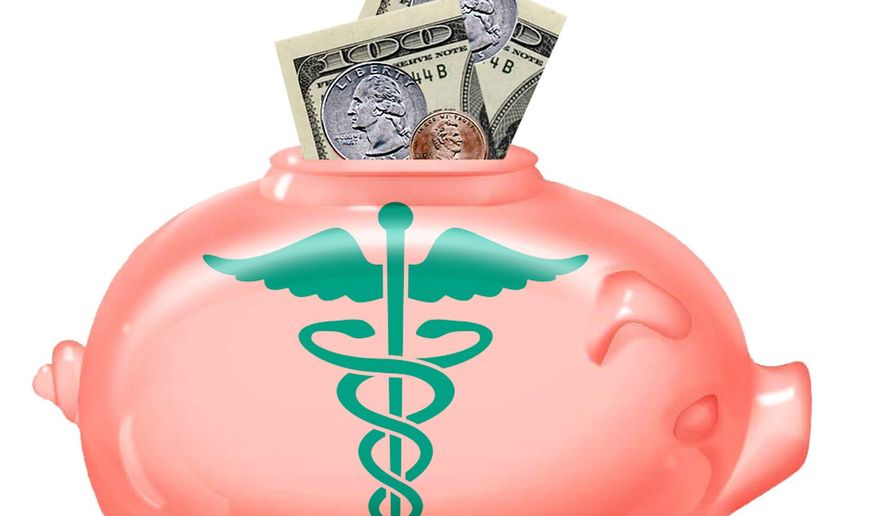OPINION:
As the federal government struggles to disburse aid fairly to households and businesses financially wounded by the pandemic, here’s a delivery mechanism Congress should consider: Allow every American to own a health savings account (HSA), guaranteeing relief to people when they need it most.
COVID-19 financial relief programs have proven the government’s inability to pay millions of people and companies at once. By mid-June, about 30 million people eligible for stimulus checks worth between $500 and $1,200 per person had not received them. Some awoke in April to find the U.S. Treasury had direct-deposited the wrong amount into their accounts. Others don’t understand whether they’re eligible, whether they must prove it, or whether their 2018 or their 2019 adjusted gross income constitutes proof.
Nor could recipients of the 159 million checks sent to date readily spend the $267 billion disbursed so far, because governments closed retailers and restaurants, and restrained transportation and recreation. Nor did all recipients need the money, having stayed on payrolls because their employers cashed in on the Paycheck Protection Program. Nor did Congress prevent large publicly-traded companies from snatching up PPP funds intended for cash-poor small businesses. Now the CARES Act purse is empty, and the House has approved the HEROES Act, hoping to repeat the play.
We can do better than this. At the very least, we can reduce the pool of people desperate for stimulus and bailout money, helping Congress to aim smaller (and miss smaller).
A much fairer, clearer, simpler and longer-term salve would be to let any American who pays taxes stash cash in a tax-advantaged health savings account. This would help meet a universal need regardless of income level or employment status: to pay for affordable, personalized health care.
Money is fungible. Making families less poor in one budget category makes them richer in all budget categories. Taxing them less for health care would reduce dependency on taxpayer bailouts for groceries and rent.
Unlike the CARES Act and HEROES Act, expanding HSAs would guarantee relief only for people experiencing a true need, and only when they need it — i.e., as their health requires. This is because money that goes into an HSA must remain there until a bona fide health care need arises. We’ll never know which fraction of CARES Act stimulus checks eased a true financial hardship.
But HSA expenditures are by definition restricted to medical needs. HSA savings therefore amount to a self-funded restricted grant — not unlike the Small Business Administration loan that turns into a grant if companies use the funds as directed.
Logistically, relief via HSA expansion couldn’t be easier to implement. Instead of relying on the government to distribute trillions of tax dollars, HSAs let taxpayers keep more of their money to begin with. No frantic loan applications. No banking bottlenecks. No waiting until the next pandemic to start helping people.
Fortunately, Congress can pass HSA reform without overhauling, undermining or reopening debate on the Affordable Care Act. The mercifully short Personalized Care Act of 2020 (Rep. Chip Roy, Texas Republican) introduced in January, would let more people save more money in HSAs.
Better yet, it would render hundreds of millions of health-related transactions “qualified medical expenses” payable out of HSAs. These include insurance premiums, direct primary care fees, over-the-counter drug costs and monthly contributions paid by members of a health care sharing ministry. The PCA would even lower the penalty for nonqualified withdrawals from 20% to 10%, making it easier for Americans to shift their household budgets in a financial crisis.
Before putting another multi-trillion-dollar Band-Aid on a hemorrhage, Congress should staunch the bleeding by letting HSAs into every American home. As a rapid, V-shaped economic recovery grows more doubtful, Congress should encourage cash savings to meet verifiable needs, not cash infusions to pad suspected ones.
Enough with the trillion-dollar heroics. Expand HSAs now to relieve the 330 million little guys, when and where they need it most.
• Ted Pittenger is president of the health care sharing ministry Samaritan Ministries International.




Please read our comment policy before commenting.